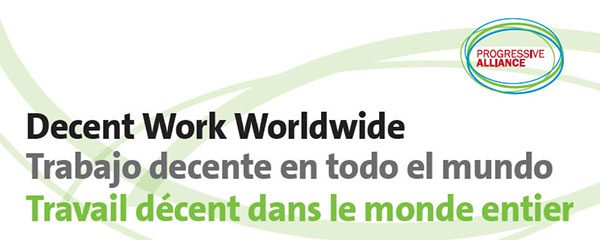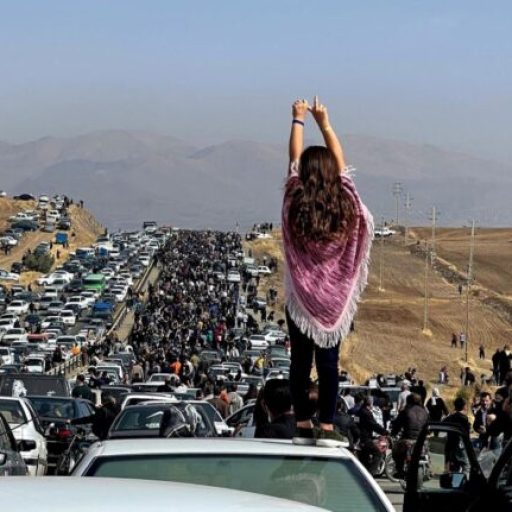Inequality is on the rise. We must fight the rat race to the bottom and make sure that decent work becomes the standard worldwide.
The reality today shows that we are far from reaching this goal. Unemployment is endemic in some areas and too many are underemployed, or not paid for work performed. People in developing and developed countries were working more for less money, and more and more people – overwhelmingly women – were forced to make their living in the so-called informal economy and in precarious jobs, stripping them of basic rights at work and social protection. Only a minority of all workers is protected through an agreement on wages and working conditions. 170 million children under the age of 15 are working instead of going to school, and in some regions slavery and forced work is still happening today. The crisis has aggravated especially the situation of young people on the labour market.

Only an international system based on solidarity and respect for people’s rights, as enshrined in United Nations and International Labour Organisation (ILO) conventions, can put a stop to these trends. We call on our governments to sign these conventions, to implement them urgently and to put decent work at the heart of their sustainable development strategies and policy-making.
We believe that decent work is the key to eradicating poverty, improving the lives of women and men, stabilising the economy, promoting sustainable growth and enabling people to live in peace and dignity. We hence call on decision-makers urgently to:
Focus on the creation of productive and decent employment
Reaffirm the contribution quality jobs make to a healthy economy and communities by implementing inclusive strategies for full and productive employment, including for those currently working in the so-called informal economy. Pursue active labour market and employment policies that link education and training to decent jobs. Invest in infrastructure, education and quality public services including in the care economy to improve long-term productive potential, and support the transition to a low-carbon economy. Ensure adequate living wages through collective bargaining or decent minimum wages as well as equal pay for men and women.
Respect workers rights
Workers’ rights to form and join trade unions and bargain collectively with their employer are fundamental to realising decent work, and all international organisations, governments and businesses must live up to their responsibilities and comply with international standards, no matter what economic or political context. This must be safeguarded by legal protections and institutional provisions at international level.
Implement social protection for all
Introduce social protection floors as recommended by the International Labour Organisation while strengthening and broadening existing social protection systems by ensuring access to social security, pensions, unemployment benefits, maternity protection and quality health care. These benefits should be available to everyone, including workers (and their families) in the informal economy and within precarious work arrangement.
Realise the potential of social dialogue
Decision-makers and social partners need to commit to substantial social dialogue and follow up on its results and recommendations. As has been shown in crisis situations, social dialogue contributes not only to social peace but has visible effects on stabilising the economy and communities.
The guiding principles of the decent work agenda should not only be applied to on the national level. They should be an integral part of the policies of the main actors of global economic and social governance: Binding mechanisms for the promotion and enforcement of decent work, including core labour standards, must be included in trade agreements and the achievement of decent work should be the objective of the policies of World Bank, IMF and WTO.
Decent work is the basis for decent life.
Decent work is the basis for social justice.
We call to action for decent work worldwide.





![Headline: Hier bitte das Thema [ Headline] 24.10.25, Lucerne, Switzerland, Progressive Alliance PA women conference](https://progressive-alliance.info/wp-content/uploads/elementor/thumbs/MAW251024mw859033AdobeRGB-scaled-recq0qxu9kb6pncdi2i7wo6ttne03ppnu58zxxdc74.jpg)
![Headline: Hier bitte das Thema [ Headline] 25.10.25, Lucerne, Switzerland, Progressive Alliance PA women conference](https://progressive-alliance.info/wp-content/uploads/elementor/thumbs/MAW251025mw860402AdobeRGB-scaled-recs8kegm3kqlleif2kq512xsjz2qfl3t7kc0t0tts.jpg)